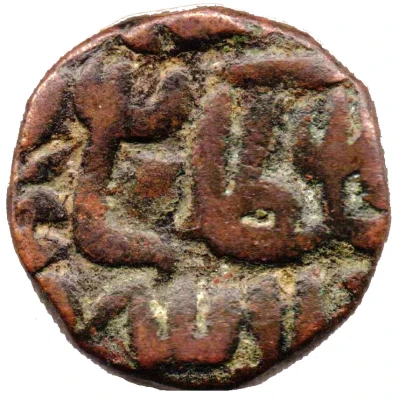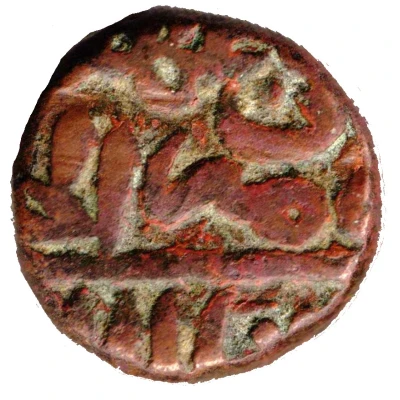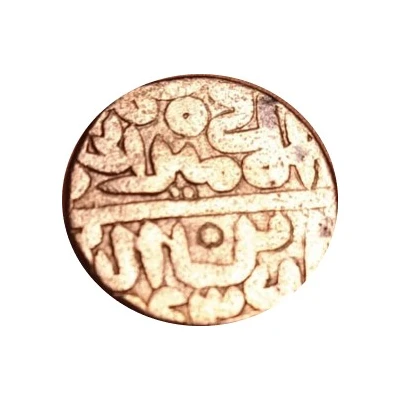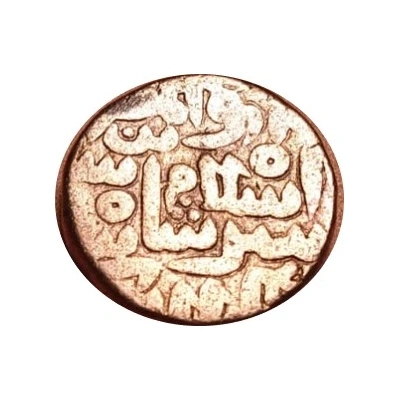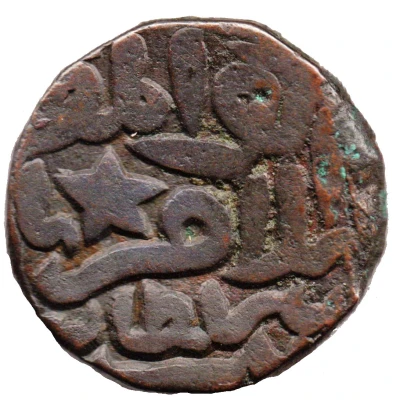
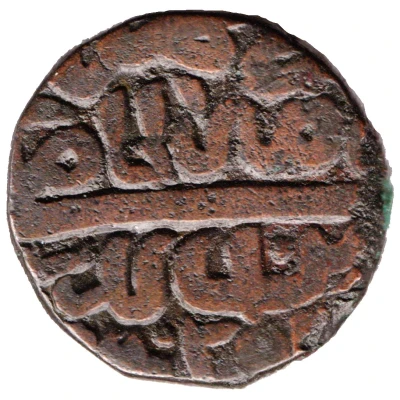

© numismaticroy
1 Paisa - Islam Shah Shahgarh ND
| Copper | 20.58 g | 22.57 mm |
| Issuer | Sur Empire (Indian Sultanates) |
|---|---|
| Sultan | Islam Shah Suri (اسلام شاہ سوری) (1545-1554) |
| Type | Standard circulation coin |
| Years | 1545-1553 |
| Value | 1 Paisa |
| Currency | Suri (1539-1545) |
| Composition | Copper |
| Weight | 20.58 g |
| Diameter | 22.57 mm |
| Thickness | 6.53 mm |
| Shape | Round (irregular) |
| Orientation | Medal alignment ↑↑ |
| Demonetized | Yes |
| Updated | 2024-10-05 |
| Numista | N#48954 |
|---|---|
| Rarity index | 86% |
Comment
RULER: ISLAM SHAH AH 952-960 / 27 May 1545 – 22 November 1554 ADThe Suri Empire was established by a Muslim dynasty of Afghan origin who ruled a vast territory in the Indian subcontinent between 1540 to 1557, with Delhi serving as its capital. It was founded by Sher Shah Suri, an ethnic Pashtun (Pathan) of the house of Sur, who supplanted the Mughal dynasty as rulers of North India during the reign of the relatively ineffectual second Mughal emperor Humayun. Sher Shah defeated Humayun in the Battle of Chausa (June 26, 1539) and again in the Battle of Bilgram (May 17, 1540). The Sur dynasty held control of nearly all the Mughal territories, between what is now Khyber Pakhtunkhwa in Pakistan to the Bengals in the east in what is now Bangladesh. The Mughals retreated west to Persia, while most of what is now eastern Afghanistan, all of Pakistan and northern India formed the Suri Empire. During the almost 17 year rule of the Sur dynasty, the region of the Indian subcontinent witnessed much economic development and administrative reforms. A systematized relationship was created between the people and the ruler, minimizing corruption and the oppression of the public.Their rule came to an end by a defeat that led to restoration of the Mughal Empire. Today, the Sur are part of the Pashtun tribal system and belong to the sub-groups of the Ghilzais.
Interesting fact
One interesting fact about this coin is that it was issued during the reign of Islam Shah, who was the second ruler of the Sur Empire and known for his military campaigns and administrative reforms. Despite being made of copper, this coin was still considered a significant denomination in its time and was widely used for trade and commerce. Additionally, the coin's design features a unique blend of Islamic and Indian architectural styles, reflecting the cultural exchange and syncretism that characterized the Sur Empire.
